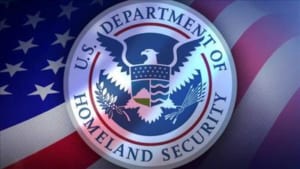The U.S. Visa Waiver Program (“VWP”), Electronic System for Travel Authorization (“ESTA”) is a program of the United States government created to facilitate visa-free travel for eligible citizens from participating countries This program is commonly referred to as ESTA by the general public.
A country qualifying for the VWP allows citizens of those participating countries to travel to the United States for tourism or business for up to 90 days without requiring a visa.
The U.S. Department of Homeland Security (“DHS”), in collaboration with the U.S. Department of State (“DOS”) and other U.S. agencies, negotiate bilateral agreements with interested countries. These agreements outline mutual requirements and commitments related to security, law enforcement, travel documentation, and information sharing.
Countries must demonstrate a commitment to meet the various security, law enforcement and immigration criteria, including sharing information on known or suspected terrorists, issuing secure biometric passports, and maintaining low rates of visa refusals and immigration violations. They must also agree to adhere to U.S. immigration laws and enforcement measures.
To qualify for VWP, countries must meet certain requirements.
- Expression of Interest:
- A country interested in joining the VWP typically expresses its interest to the U.S. government through diplomatic channels.
- This signals the beginning of discussions regarding potential eligibility and requirements.
- Negotiation of Agreements:
- Negotiations between the U.S. and the interested country occur to establish the terms of participation in the VWP.
- These negotiations cover various aspects, including security protocols, data sharing, and reciprocal treatment of travelers.
- Legislative and Regulatory Approval:
- Once an agreement is reached, the process involves legislative and regulatory actions in both the United States and the intending country.
- In the U.S., relevant agencies such as DHS and the DOS may need to publish regulations and update laws to accommodate the new VWP participant.
- Implementation and Monitoring:
- After approval, the intending country begins implementing necessary measures, such as enhancing passport security features and integrating with U.S. databases for information sharing.
- Ongoing monitoring ensures compliance with agreed-upon standards and addresses any emerging security concerns.
Foreign nationals of countries that become eligible for the VWP gain the convenience of applying for ESTA authorization to visit the U.S. without being required to apply for a visitor visa. This reduces the time and cost of a visa application. However, individuals must still be able to qualify based on their personal situation. For example, an applicant might still be denied ESTA approval if they have a criminal record, have committed a violation in seeking a medical benefit, or are unable to prove their entry into the U.S. is for a short term, specific purpose.
If you have an U.S. visa or immigration questions, contact us at info@enterlinepartners.com.
ENTERLINE & PARTNERS CONSULTING
Ho Chi Minh City, Vietnam Office
146C7 Nguyen Van Huong St, Thao Dien Ward,
District 2, Thu Duc City
Ho Chi Minh City, Vietnam
Tel: +84 933 301 488
Email: info@enterlinepartners.com
Facebook: Enterline & Partners – Dịch vụ Thị thực và Định cư Hoa Kỳ
YouTube: @EnterlineAndPartnersConsulting
Website: http://enterlinepartners.com
Manila, Philippines Office
Tel: +63 917 543 7926
Email: info@enterlinepartners.com
Facebook: Enterline and Partners Philippines
Website: https://enterlinepartners.com/language/en/welcome/
Copyright 2024. This article is for information purposes only and does not constitute legal advice. This article may be changed with or without notice. The opinions expressed in this article are those of Enterline and Partners only.








